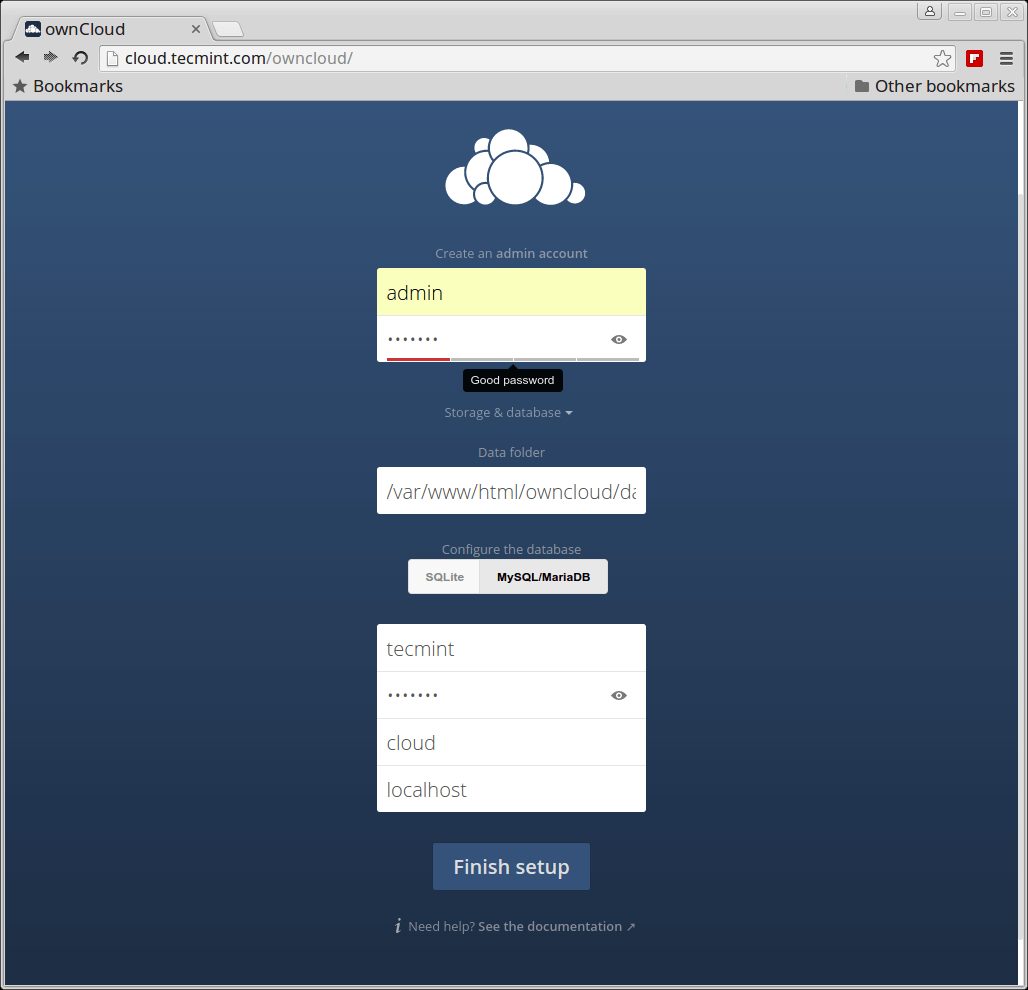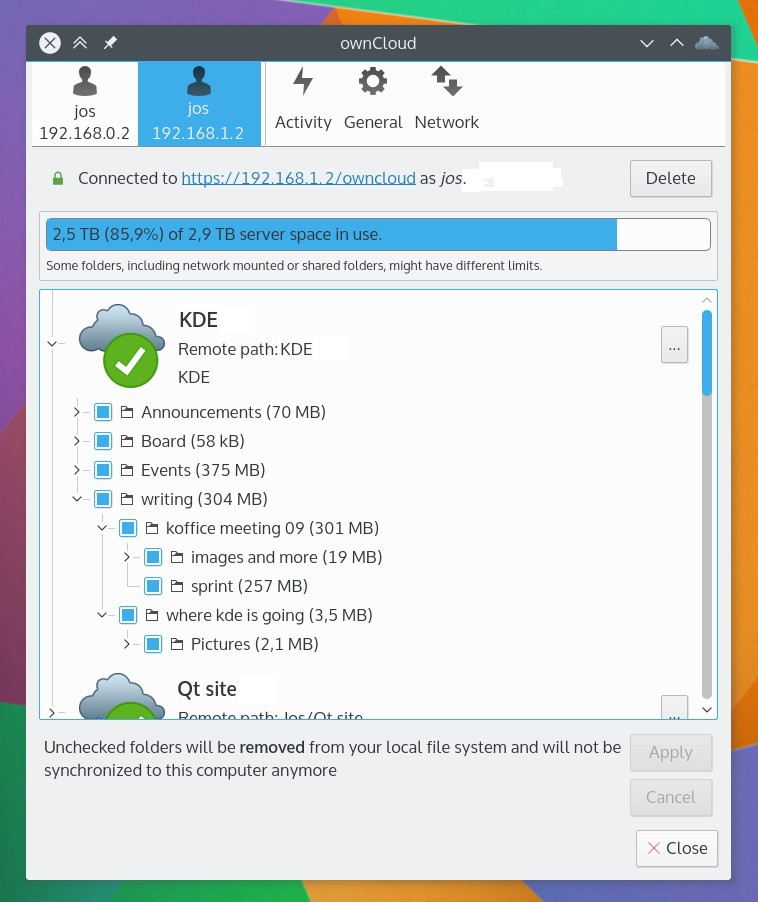

This container is mounted on a docker socket to capture all events created by docker to be able to proxied any container with an env variable VIRTUAL_HOST define. Nginx proxy is a container running Nginx and docker-gen which is a service that generates reverse proxy configs for Nginx and reloads Nginx when containers are started or stopped. Installation of Nginx-proxy and acme-compagnon We will now configure Nginx-proxy to drive traffic to it. Our Owncloud instance is now running but is not accessible from the internet. Let’s create it.Įnter fullscreen mode Exit fullscreen mode The external network we declare in the docker-compose file doesn’t exist yet. These configurations are perfect for the production environment and you can easily adjust them according to your needs. We have explained to you all the configurations in the docker-compose file. env file, you must change OWNCLOUD_DOMAIN with your domain, ADMIN_USERNAME with the username or email you want to login to the server, ADMIN_PASSWORD with a strong password, and LETSENCRYPT_EMAIL with the email address to be used by let’s encrypt to issue the SSL certificate.
#Linux owncloud free
Also, this way of deployment allows us to have multiple applications on the same server with docker and protect all of them with a free SSL certificate. We want our installation to be protected by an SSL certificate, so we connect our containers to an external network connected to a reverse proxy server. It’s used to improve the performance of an Owncloud server thanks to its faster access. It can be used for single and multi-server ownCloud installations, which provide file locking and can be set up in local or distributed environments. Redis is an excellent modern memory cache solution to use for distributed caching. Those variables must be the same to ensure Owncloud is capable to connect to the MariaDB server. In the mariadb service, we use four environment variables where MYSQL_USER must be the same as OWNCLOUD_DB_USERNAME MYSQL_PASSWORD the same as OWNCLOUD_DB_PASSWORD, and finally MYSQL_DATABASE the same as OWNCLOUD_DB_NAME. Owncloud used port 8080, it’s why we have set this value. This value can be ignored in case the default port is 80.

Image: owncloud/server:$ is to tell the reverse proxy server the port used by the container for the incoming traffic. The docker-compose file will allow us to compose the Owncloud server container, MariaDB database, and Redis cached server. After that, the remaining steps will remain the same for all of you.įor Owncloud deployment with docker, we only need two files: a docker-compose file and a.
#Linux owncloud install
There are too many Linux distributions out there, and everybody should ensure to properly install docker and docker-compose for his Linux distribution. Docker and docker-compose installed on that server.A Linux Server with SSH and root access.Pre-requisite for the deployment of OwncloudĪs we choose to deploy Owncloud in production using docker and docker-compose, there are some prerequisites before starting. So, in this blog post, we will deploy it with docker and perhaps we’ll cover another deployment method in other posts. For me, the easy way to deploy it in production is to use docker. There is now a docker version of the Owncloud server provided and maintained by Owncloud Inc, the company behind Owncloud. There is an Owncloud package for all major Linux distributions such as Debian, Ubuntu, Fedora, RedHat Enterprise Linux, CentOS, and OpenSUSE. You can deploy Owncloud to your server or choose Owncloud Saas to avoid caring about infrastructure. It allows you to build your cloud infrastructure like dropbox to gain your data sovereignty from big tech companies offering cloud storage and file sharing services. It is a suitable solution for all kinds of people, from individual people to big companies with solely the aim to increase productivity.

Owncloud has a rich ecosystem and is accessible through various platforms: web, desktop, android, and iOS. Owncloud is a very popular files sharing solution and is extremely used with around 200 million users around the world.
#Linux owncloud download
It’s an open-source project, so you can download and deploy it on your server without paying anything.

Owncloud is a set of collaboratory tools that allow users to store their files, share them and easily collaborate on the same data.


 0 kommentar(er)
0 kommentar(er)
